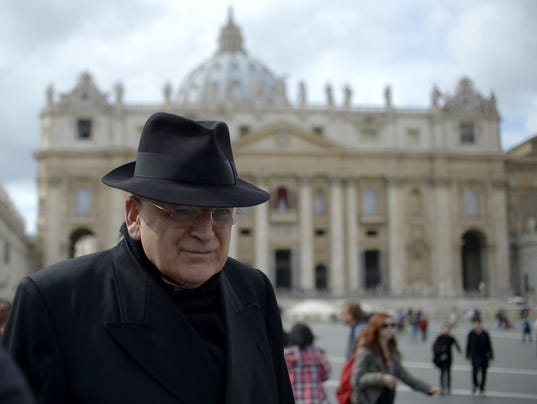Saturday, November 15, 2014
walk in another's shoes?
By
CNu
at
November 15, 2014
0
comments
![]()
Labels: scientific morality , work
cathedral castration: shirt ain't stop nobody from loving and doing science
By
CNu
at
November 15, 2014
5
comments
![]()
Labels: Ass Clownery , Cathedral , individual sovereignty
for some of us, disgust is half a click from violence...,
By
CNu
at
November 15, 2014
0
comments
![]()
Labels: essence , self-observation , self-remembering , What IT DO Shawty... , work
Friday, November 14, 2014
the 85 richest people in the world control as much wealth as the poorest 3.5 billion...,
By
CNu
at
November 14, 2014
7
comments
![]()
Labels: global system of 1% supremacy , Livestock Management
aggressive, chauvinistic intellectuals....,
See more: http://socialethology.com/dugin-syndrome-intellectuals-chauvinistic-aggressive
Copyright © Dorian Furtuna
By
CNu
at
November 14, 2014
0
comments
![]()
Labels: ethology , killer-ape , What IT DO Shawty...
Thursday, November 13, 2014
speaking of domestic surveillance, terrorism, character-assassination and other late-MLK type isht...,
By
CNu
at
November 13, 2014
0
comments
![]()
Labels: domestic terrorism , Living Memory , Race and Ethnicity
pope francis must be depressed or sum'n, steady on that radical late-MLK type isht...,
By
CNu
at
November 13, 2014
0
comments
![]()
Labels: conspicuous consumption , dopamine , hegemony , status-seeking , The Straight and Narrow
knowing what the system is helps you know who your allies are...,
By
CNu
at
November 13, 2014
0
comments
![]()
Labels: conspicuous consumption , dopamine , hegemony , status-seeking
destruction of the system of dopamine hegemony is the end: everything else is merely conversation...,
'It's hard to believe that, until fairly recently, Julian Assange was hailed not just as a radical thinker, but as a radical achiever, too.'
'Quite a feat to move from Messiah to Monty Python, but good old Julian Assange seems to have managed it.'
'He really is the most massive turd.'
'Today humanity faces a stark choice: save the planet and ditch capitalism, or save capitalism and ditch the planet.' (p.345)
By
CNu
at
November 13, 2014
2
comments
![]()
Labels: dopamine , global system of 1% supremacy , hegemony , presstitution , propaganda , What IT DO Shawty...
renunciation of dopamine hegemony is the beginning..,
'Get money. I got money, I got the stuff on the other side of the glass and it didn't work.' (p.56)
'I have seen what fame and fortune have to offer and I know it's not the answer. That doesn't diminish these arguments, it enhances them.' (p.202)
'We have been told that freedom is the ability to pursue petty, trivial desires when true freedom is freedom from these petty, trivial desires.' (p.66)
'I can still be deceived into thinking, "Wow, I'd like to be him," then I remember that I was him.' (p.314)
'That night with those two immaculate girls... did not feel like it looked.' (p.315)
'Kisses are exchanged and lips get derivatively bitten, and I am unsmitten and unforgiven, and when they leave I sit broken and longing on the chaise.' (p.316)
'This looks how it's supposed to look but it doesn't feel how it's supposed to feel.' (p.186)
By
CNu
at
November 13, 2014
0
comments
![]()
Labels: culture of competence , essence , subrealist oeuvre... , What IT DO Shawty... , work
can it be that it was all so simple?
By
CNu
at
November 13, 2014
0
comments
![]()
Labels: conspicuous consumption , cowardice , debt slavery , disinformation , dopamine , hegemony , status-seeking
Wednesday, November 12, 2014
e.o. wilson on bishop dawkins...,
By
CNu
at
November 12, 2014
0
comments
![]()
Labels: ethics , Genetic Omni Determinism GOD , scientific morality
it isn't only that john gray doesn't care for richard dawkins...,
By
CNu
at
November 12, 2014
0
comments
![]()
Labels: political theatre , scientific morality
the ecology of religious beliefs
By
CNu
at
November 12, 2014
0
comments
![]()
Labels: complications , conspicuous consumption , consumerism , cooperation , cultural darwinism
pope's deratzingerization on and popping...,
By
CNu
at
November 12, 2014
0
comments
![]()
Labels: the wattles , theoconservatism
teh'geh coming to grips with the church of rome....,
By
CNu
at
November 12, 2014
0
comments
![]()
Labels: cognitive infiltration , institutional deconstruction , theoconservatism
Tuesday, November 11, 2014
what will bishops and cardinals do without fear and hatred to move the crowd?
By
CNu
at
November 11, 2014
12
comments
![]()
Labels: Livestock Management , The Hardline , the wattles
supernatural punishment, in-group biases, and material insecurity
By
CNu
at
November 11, 2014
0
comments
![]()
Labels: assimilate , magical thinking , not gonna happen... , the wattles
priming of supernatural agent concepts and agency detection: are you a believer?
By
CNu
at
November 11, 2014
0
comments
![]()
Labels: the wattles , What IT DO Shawty...
reflective elaborations on intuitions - what sort of beliefs are religious beliefs?
By
CNu
at
November 11, 2014
0
comments
![]()
Labels: neuromancy , neurotypes , What IT DO Shawty...
Monday, November 10, 2014
pope cleaning house
By
Dale Asberry
at
November 10, 2014
3
comments
![]()
supernatural monitoring and sanctioning in community-based resource management
By
CNu
at
November 10, 2014
0
comments
![]()
Labels: quorum sensing? , the wattles , What IT DO Shawty...
true fifty years ago, and still true today - h.rap an'em cats were literally too smart to move the crowd...,
By
CNu
at
November 10, 2014
0
comments
![]()
Labels: Livestock Management , The Hardline , the wattles
which cheek did jesus turn?
By
CNu
at
November 10, 2014
0
comments
![]()
Labels: medieval , neuromancy , subliminal , subrealist oeuvre... , The Straight and Narrow
Sunday, November 09, 2014
vote all you want, the secret government won't change....,
By
CNu
at
November 09, 2014
9
comments
![]()
Labels: Deep State , Obamamandian Imperative , predatory militarism , warsocialism
another fake bin laden story?
By
CNu
at
November 09, 2014
0
comments
![]()
Labels: Double "O" , information anarchy , predatory militarism
dissension in the ranks?
By
CNu
at
November 09, 2014
0
comments
![]()
Labels: information anarchy , predatory militarism
Chipocalypse Now - I Love The Smell Of Deportations In The Morning
sky | Donald Trump has signalled his intention to send troops to Chicago to ramp up the deportation of illegal immigrants - by posting a...

-
theatlantic | The Ku Klux Klan, Ronald Reagan, and, for most of its history, the NRA all worked to control guns. The Founding Fathers...
-
NYTimes | The United States attorney in Manhattan is merging the two units in his office that prosecute terrorism and international narcot...
-
Wired Magazine sez - Biologists on the Verge of Creating New Form of Life ; What most researchers agree on is that the very first functionin...








